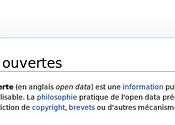The "What is X?" Question
1. Socrates asked a simple kind of question that revolutionized philosophy: "What is it?"
2. Usually raised about significant moral or aesthetic qualities (e.g., justice, courage, wisdom, temperance, beauty).
3. Such questions are the central concern of the "Socratic" (early) dialogues of Plato.
4. A so-called "Socratic definition" is an answer to a "What is X?" question.
5. Socratic definitions are not of words, but of things. Socrates does not want to know what the word 'justice' means, but what the nature of justice itself is.
6. A correct Socratic definition is thus a true description of the essence of the thing to be defined. I.e., definitions can be true or false.
II. The Importance of Socratic Definitions
A. They are objective.
1. Socrates was opposed to the moral relativism of the Sophists.
2. He believed that there were objective moral standards; that they could be discovered; that there were right and wrong answers to moral questions that went beyond mere opinion and popular sentiment.
B. They are fundamental for knowledge.
1. Socrates claims that until you know what a thing is, you can't answer any other questions about it.
2. So any inquiry into any moral question presupposes an answer to the relevant "What is X?" question. Not just that there is such an answer, but that the inquirer is in possession of it.
3. E.g., in the Meno, Socrates claims that you cannot answer a question about virtue ("Can it be taught?") until you have answered a more fundamental question: "What is it?"
4. In general, he thought that a person's having knowledge involving a concept, X, depends upon his knowing the correct answer to the "What is X?" question.
C. They are fundamental for morality.
1. He thought that the possibility...

![English: Studio publicity portrait]](https://s.writework.com/uploads/2/29378/english-studio-publicity-portrait-thumb.jpg)
